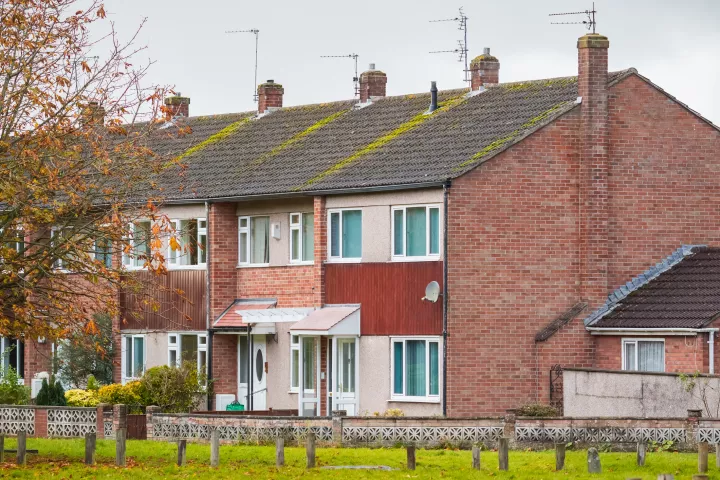Susan, a Housing Executive tenant, contacted us recently to find out what rights she had to compensation for improvements she had made to her property.
Susan was transferring to another property. Susan had installed wooden floors in her Housing Executive property. The work had cost her over £1000 and she wanted to know if the Housing Executive was obliged to refund this money to her. Unfortunately for Susan, the answer to her question was “no”.
Tenants can become frustrated when repairs or improvements are delayed and may be tempted to pay for the work themselves. However, compensation for tenant improvements is only paid in limited circumstances. Tenants should exercise great care before incurring the expense of work to a rented property.
Tenant’s rights to compensation for qualifying improvements
The right to compensation for improvements was brought in by the Housing Northern Ireland Order 2003, which amended the Housing Northern Ireland Order 1983.
Under this scheme secure tenants of the Housing Executive may be able to receive compensation from the Housing Executive for improvements which they have made to their home on or after July 2003. A tenant who has succeeded to a tenancy can also apply for compensation. Secure tenants who carried out qualifying improvements before July 2003 may have rights to compensation under the old scheme.
Compensation will only be paid when the tenancy ends. Compensation will not be paid
- if the tenant has purchased the property under the house sales scheme or
- if the property is being repossessed by the Housing Executive
What types of improvements will qualify?
Certain improvements that are valued at between £100 and £3000 can be considered. Tenants may be compensated for installing, replacing or fitting
- a bath or shower
- wash-hand basin
- toilet
- kitchen sink
- storage cupboards in bathroom or kitchen
- work surfaces for food preparation
- space or water heating
- thermostatic radiator valves
- insulation of pipes, water tank or cylinder
- loft insulation
- cavity wall insulation
- draught proofing of external doors or windows
- double glazing or other external window replacement
- secondary glazing
- rewiring or the provision of power and lighting or other electrical fittings (including smoke detectors)
- any object that improves the security of the dwelling house but excluding burglar alarms.
Tenants won’t be compensated for purely redecorating their homes, so things like new flooring, blinds, fitted wardrobes etc aren’t included in the scheme. The landlord will only pay compensation on qualifying improvements where the tenant got written permission to do the work.
Tenants must get permission for repairs
Crucially, the tenant is only entitled to compensation if they were given written permission to make the improvement or alteration and the tenancy is coming to an end.
However, the landlord cannot unreasonably withhold permission. If the landlord will not permit the tenant to carry out certain improvements, it must write to the tenant explaining the reasons for this decision.
A tenant who has been refused permission for improvements or who believes that there has been an unreasonable delay in making a decision can appeal to the area manager or to the County Court.
How much compensation is the tenant entitled to?
The tenant can claim for the costs of the improvements, including material and labour, as long as they can provide evidence of these costs. Tenants can’t claim for labour costs for work they’ve carried out themselves or for the value of electrical appliances, like fridges or ovens.
When paying compensation the landlord must consider the condition of the improvement at the time the tenancy ends. The landlord will also make certain deductions from the cost of the improvements. Money will be deducted to cover
- any grants or self-help payments that the tenant received to help with the work
- the annual depreciation of the improvement
- any rent arrears or other charges owing on the tenant’s account at the time the tenancy ends.
Time limits for claim
Tenants can claim for compensation in the 28 days leading up to them ending the tenancy and in the 21 days after they’ve left. Tenants can appeal the landlord’s decision on compensation within 21 days of the decision being made.
What if tenants did not get permission or approval for the improvements?
Tenants should never carry out improvements or repairs to a rented home without the landlord’s express written permission. Social tenants won’t be entitled to compensation if they don’t have permission and they can even be held liable for the costs of returning the property to its original condition. In Susan’s case, the Housing Executive could bill her for the cost of removing her wooden floors and installing suitable replacements.
Not only could tenants be responsible for the costs of returning the property to its original decision, they could also find themselves liable if a visitor to the property sustained an injury as the result of unauthorized works carried out.
It’s essential that tenants get written permission from their landlord before starting any kind of improvement work on a rented home.
What about tenants in housing association properties?
Most Housing Associations operate similar schemes. A tenant should check their tenancy agreement and seek the necessary consent before carrying out any work to their home.
What about private tenants?
We strongly discourage private tenants from paying for repairs or improvements to their home. Private tenants do not have a right to compensation for improvements or a right to offset the cost of these against rent. The limited security of tenure afforded to private tenants brings extra risks as you could end up paying thousands for a new bathroom only to be evicted at the end of your tenancy term. In this scenario, the landlord would be under no obligation to continue the tenancy or to reimburse the tenant for the money the tenant has spent on the property.


